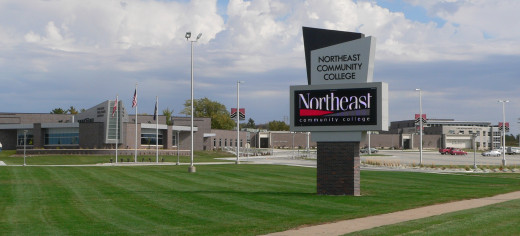I Can't Afford College: What to do When You Can't Afford School
When You Can't Afford to go to College- What to Do?
There's no college fund for you. Your part-time job isn't going to cut it. Or your full-time job is barely enough for you to get by. It seems that the American idea of "going to college" isn't going to be an option for you, even though you have the ability to succeed.
But are you really sure? When you can't afford to go to a four-year college, are you really considering all your options? Before you resort to undesirable methods that could put you into a bad financial situation, have you thought about community college, also known as junior college? This path, one that may not appear as glamorous as the typical four-year school "college experience" shown in movies and TV, can help get you on the path of college education, if it's your goal to learn.
Myths About Community College
Before you dismiss this option, you should know that there are some common myths about community college. Take a look at the truth about community college. It could be the way you can afford college after all.
Myth #1: Community college is for people who can’t get in somewhere else.
If you’ve heard that “Community College is 13th grade,” there’s an explanation. As state-funded institutions, community colleges are known for open admittance policies, meaning that there is usually no minimum ACT or SAT score required to get in and sign up for classes. They typically offer:
- Cheap tuition rates and financial aid from the FAFSA (Free Application for Federal Student Aid)
- Evening, weekend and online class availability
- The ability to transfer your credits to a four-year school, if you want to complete a Bachelor’s degree
- Co-ops or internships to give you real-world experience
- The freedom to choose your major, just as you would at a four-year school

Myth #2: Community college isn’t the same as a university.
It is true that the community college experience is different.
- Class sizes are smaller which can mean more attention from instructors.
- There are no dorms, which means tuition funds aren't spent on the upkeep of residence halls.
- The student body is more diverse, with people of all ages and life experiences.
- If there isn’t an extracurricular activity that interests you, you can start one, just as you could at a four-year school.
What's the most appealing aspect of community colleges?
Is the price tag worth it?
When considering which school to attend, consider the cost of tuition that you're paying as well as how much you expect to make upon graduation.
According to The Institute of Education Sciences, students in the 2011 - 2012 school year paid an average of $14,300 at public universities.
How important is it to make sure you can manage the cost of attending college?
Working in such jobs and earning such salaries, can college grads manage their debts and pay for things like rent or a new car? These are questions to be asked.
Before making your final decision on where to attend school, consider the financial commitment you're making and how it will impact your future.

Myth #3: I want to go to a real school. I’ll be behind if I go to a community college.
By “real school”, do you mean a four-year college that costs twice as much?
- If your goal is to get a Bachelor’s degree, you can transfer your community college credits to a four-year school. However, it is wise to contact the Admissions office of the four-year school where you’d like to ultimately attend. Ask that university how credits typically transfer from the community college. A small amount of planning can make a big difference in the long run.
- If you’re concerned that a community college won’t challenge you enough, ask if there’s an honors program. Participating in an honors program can place you with others that also want to be academically challenged.
Tuition Costs for Selected Community Colleges
Tuition as low as $153 per credit hour
Tuition is $49.30 for half a credit hour.
Tuition varies based on resident or non-resident status.
$139 for one credit hour.
Per semester tuition/fees are $3,412 for in-district students.
Tuition per semester: $ 2,907 (Nevada); different prices for "With Parent & "Western Undergrad."
$290 per credit hour.
Varies: As low as $68 per credit hour for residents; as high as $192 per credit hour for non-residents.
$101 per credit hour or $1,200 per semester for Wyoming residents; separate cost for non-Wyoming students.
$1,144.00 per semester for North Carolina residents for 16 or more credit hours; $71.50 per semester hour.

© 2014 erinshelby








